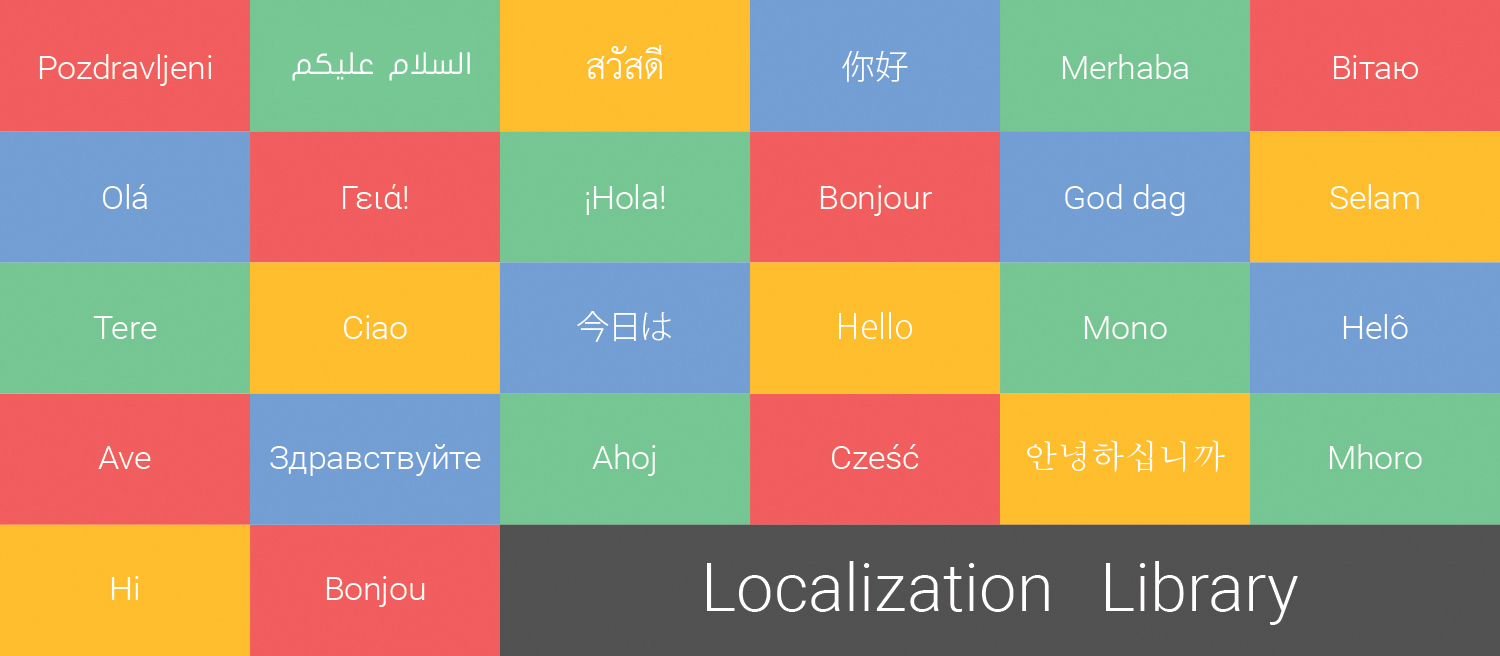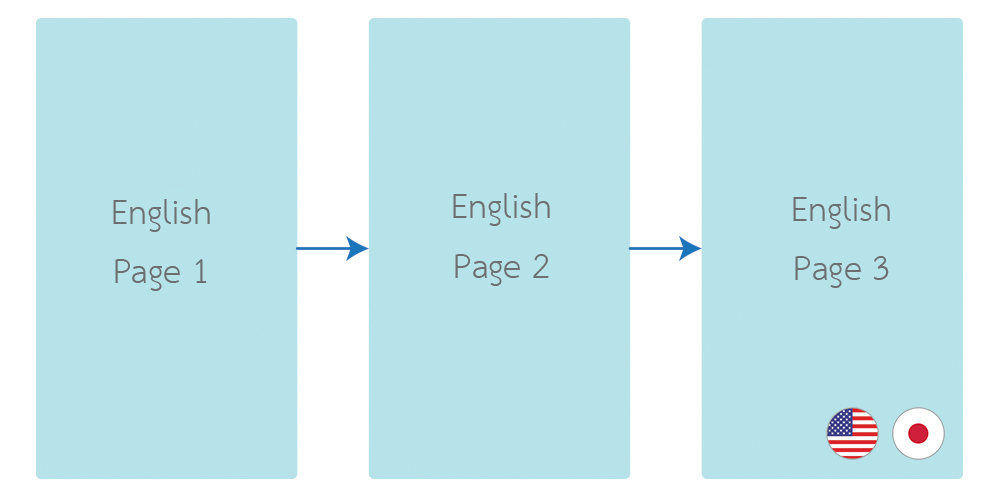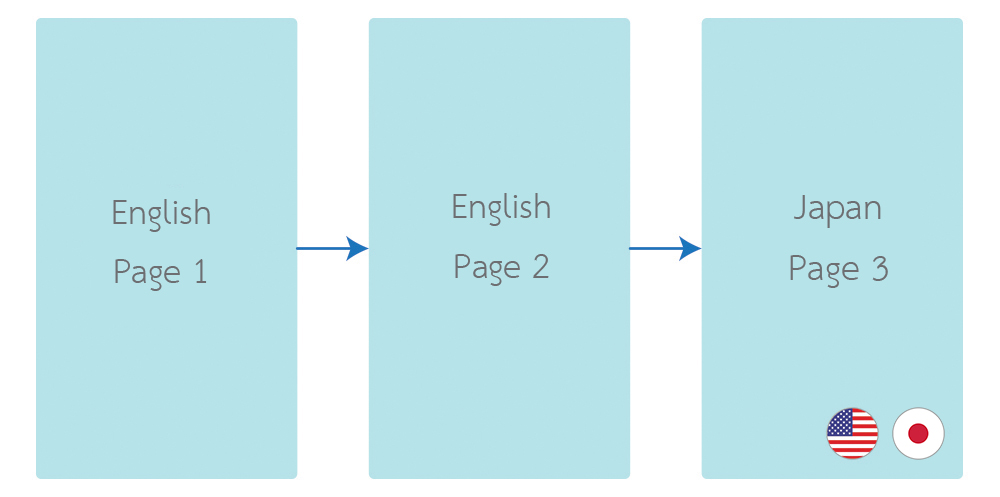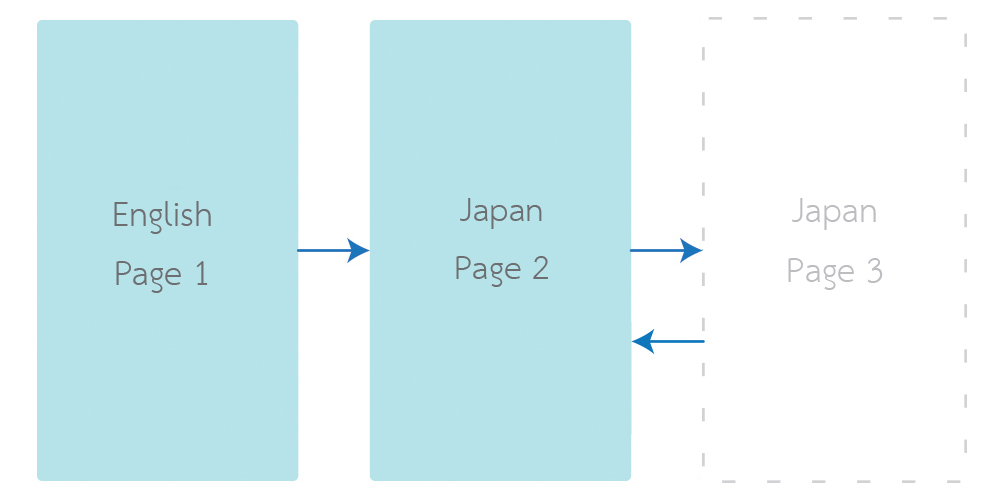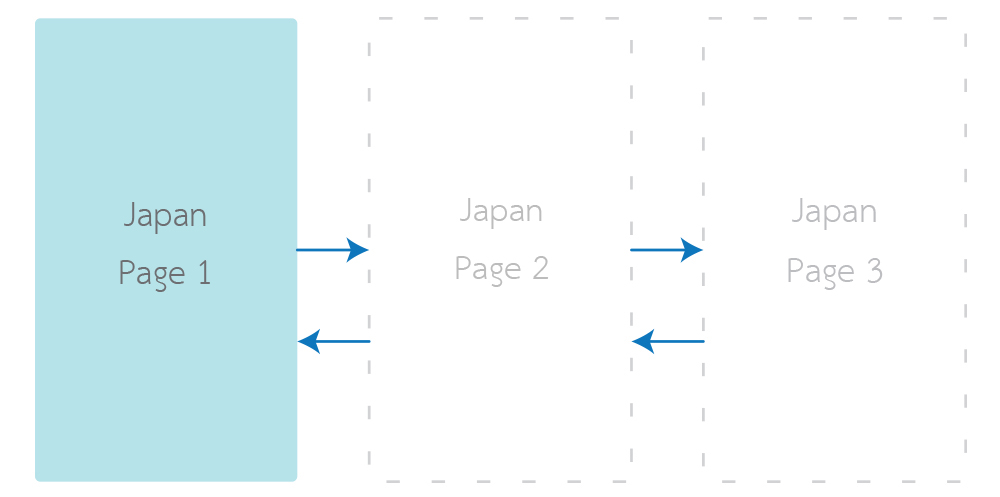Android-LocalizationActivity
You can now chill out on supporting multiple languages on your android application.
It is normal for your Android application to support multiple languages. And it is very easy because you can do them by putting each language in different String Resource folders. That is the only thing that developers has to do. The rest will be handled by Android system.
Its easiness comes with a limitation. The language of your application follows your Android System language. Life is hard when you change your application language on-the-fly. E.g., you have a language switcher button in your application. If you have this problem, you come to the right place. I have created a library to handle language changing at application level. It is called "Localization Activity".
Demo
Watch a short demo video from YouTube or try it at Google Play
Download
Maven
<dependency>
<groupId>com.akexorcist</groupId>
<artifactId>localizationactivity</artifactId>
<version>1.2.1</version> </dependency> Gradle
compile 'com.akexorcist:localizationactivity:1.2.1' (Optional) You can exclude com.android.support:appcompat-v7, if your project doens't use AppCompat v7 and declare this library with delegate way.
Update
1.2.2
- [bug] Bug fixed #18
- Remove java 1.8 and lambda from the library
- Update gradle to 3.0 stable
1.2.1
- Support string resource from getApplicationContext()
- Add LocalizationApplicationDelegate. So you need to custom application class in your app
- LocalizationDelegate was deprecated, replace by LocalizationActivityDelegate
1.2.0
- [bug] Bug fixed : Android 7.0 language #14
- [bug] Language and country support #5
- [bug] RTL on orientation changes #15 #9
Feature
- On-time language changing supported.
- Auto setup when activity was created.
- Current language config will save to
SharedPreferenceautomagically. - Very easy to use it.
LocalizationActivity extends from AppCompatActivity
LocalizationActivity is extended from AppCompatActivity class. So you still can use all methods from AppCompatActivity class.
Don't like AppCompat v7? Try delegate way
(By @AleksanderMielczarek)
import android.app.Activity; import android.content.Context; import android.content.res.Resources; import android.os.Bundle; import com.akexorcist.localizationactivity.core.LocalizationActivityDelegate; import com.akexorcist.localizationactivity.core.OnLocaleChangedListener; import java.util.Locale; public abstract class CustomActivity extends Activity implements OnLocaleChangedListener {
private LocalizationActivityDelegate localizationDelegate = new LocalizationActivityDelegate(this);
@Override
public void onCreate(Bundle savedInstanceState) {
localizationDelegate.addOnLocaleChangedListener(this);
localizationDelegate.onCreate(savedInstanceState);
super.onCreate(savedInstanceState);
}
@Override
public void onResume() {
super.onResume();
localizationDelegate.onResume(this);
}
@Override
protected void attachBaseContext(Context newBase) {
super.attachBaseContext(localizationDelegate.attachBaseContext(newBase));
}
@Override
public Context getApplicationContext() {
return localizationDelegate.getApplicationContext(super.getApplicationContext());
}
@Override
public Resources getResources() {
return localizationDelegate.getResources(super.getResources());
}
public final void setLanguage(String language) {
localizationDelegate.setLanguage(this, language);
}
public final void setLanguage(Locale locale) {
localizationDelegate.setLanguage(this, locale);
}
public final void setDefaultLanguage(String language) {
localizationDelegate.setDefaultLanguage(language);
}
public final void setDefaultLanguage(Locale locale) {
localizationDelegate.setDefaultLanguage(locale);
}
public final Locale getCurrentLanguage() {
return localizationDelegate.getLanguage(this);
}
// Just override method locale change event
@Override
public void onBeforeLocaleChanged() {
}
@Override
public void onAfterLocaleChanged() {
}
}
Usage
You need to use custom application class in your project that implemented the LocalizationApplicationDelegate class.
import android.app.Application; import android.content.Context; import android.content.res.Configuration; import com.akexorcist.localizationactivity.core.LocalizationApplicationDelegate; public class MainApplication extends Application {
LocalizationApplicationDelegate localizationDelegate = new LocalizationApplicationDelegate(this);
@Override
protected void attachBaseContext(Context base) {
super.attachBaseContext(localizationDelegate.attachBaseContext(base));
}
@Override
public void onConfigurationChanged(Configuration newConfig) {
super.onConfigurationChanged(newConfig);
localizationDelegate.onConfigurationChanged(this);
}
@Override
public Context getApplicationContext() {
return localizationDelegate.getApplicationContext(super.getApplicationContext());
}
}
In your activity, just extends from LocalizationActivity class or your custom class.
import android.os.Bundle; import android.view.View; import com.akexorcist.localizationactivity.ui.LocalizationActivity; public class MainActivity extends LocalizationActivity implements View.OnClickListener {
@Override
public void onCreate(Bundle savedInstanceState) {
super.onCreate(savedInstanceState);
setContentView(R.layout.activity_simple);
findViewById(R.id.btn_th).setOnClickListener(this);
findViewById(R.id.btn_en).setOnClickListener(this);
}
@Override
public void onClick(View v) {
int id = v.getId();
if (id == R.id.btn_en) {
setLanguage("en");
}
else if (id == R.id.btn_th) {
setLanguage("th");
}
}
}
In the example above, when a user clicks on a button. It will change to English or Thai language. That's it!
It's very easy, right? You barely do anything.
Then just build up some String Resource for English and Thai language.
Complete! Your application now supports multiple languages now.
Public method on LocalizationActivity
I wanted it to be easy to use and does not have to do much coding. So it have only 3 public methods.
void setLanguage(String language) void setLanguage(String language, String country) void setLanguage(Locale locale) String getLanguage() void setDefaultLanguage(String language) void setDefaultLanguage(String language, String country) void setDefaultLanguage(Locale locale)setLanguage Set the language that you need to change. The string value given will be use for setup Locale class later.
Example
setLanguage("th")
// Language : Thailand setLanguage("th", "TH")
// Language : Thailand, Country : Thai setLanguage("en")
// Language : English setLanguage("en", "GB")
// Language : English, Country : Great Britain setLanguage("en", "US")
// Language : English, Country : United States setLanguage(Locale.KOREA)
// Language : Korean, Country : Korea setLanguage(Locale.KOREAN)
// Language : Korean setLanguage(Locale.CANADA_FRENCH)
// Language : French, Country : CanadaSo you must determine the correct language for Locale class.
getLanguage Get current language. (Return to string locale)
setDefaultLanguage Set default language if there is no language configuration. Provided that this method must called only once at first activity in your application and called before super.onCreate
@Override public void onCreate(Bundle savedInstanceState) {
setDefaultLanguage(Locale.JAPAN);
super.onCreate(savedInstanceState);
setContentView(R.layout.activity_main);
...
}
and 2 optional override methods.
void onBeforeLocaleChanged() void onAfterLocaleChanged()This override method will be called then activity language was changed. If you need to know when language has change, just override these methods.
Usually change the language code has a problem with activity that already created.
If latest activity can change the language. It does not apply to previous activity.
But no problem for this library when application getback to previous activity. If you extend that activity to LocalizationActivity. It will changed immediately.
Action Bar or Toolbar's title
You have to call
setTitle(String title) // or getActionBar().setTitle(String title)in on activity create (onCreate) every time
public class MainActivity extends Localization {
@Override
public void onCreate(Bundle onSavedInstanceState) {
...
setTitle(R.string,user_management_screen);
}
}
Instance State
When language was changed. An activity wil recreated. So if you have any data object. It should be handle by save/restore instance state for complelely works. (It simple way to supported portrait/landscape orientation)
Therefore you have to override onSaveInstance and onRestoreInstance in to your code, and handle it.
import android.os.Bundle; import android.view.View; public class MainActivity extends LocalizationActivity implements View.OnClickListener {
@Override
public void onCreate(Bundle savedInstanceState) {
super.onCreate(savedInstanceState);
setContentView(R.layout.activity_main);
// TODO Initial view and widget here
if (savedInstanceState == null) {
// TODO Activity first created
}
else {
// TODO Activity recreated from screen orientation or change language
}
}
@Override
protected void onSaveInstanceState(Bundle outState) {
super.onSaveInstanceState(outState);
// TODO Save instance here
}
@Override
protected void onRestoreInstanceState(Bundle savedInstanceState) {
// TODO Restore instance here
super.onRestoreInstanceState(savedInstanceState);
}
}
Fragment
It's affect on fragment as well.
Fragment language configuration is depending with activity. If activity language was changed and recreated. It will apply to fragment as well. So you have to handle to Instance State on fragment like an activity.
About Save/Restore Instance State. Read more on The Real Best Practices to Save/Restore Activity's and Fragment's state.
Documentation
English Version : http://www.akexorcist.com/2015/07/localization-activity-best-way-to-handle-language-en.html
Thai Version : http://www.akexorcist.com/2015/07/localization-activity-best-way-to-handle-language.html
Special Thanks
@first087 @AleksanderMielczarek
Licence
Copyright 2015 Akexorcist
Licensed under the Apache License, Version 2.0 (the "License"); you may not use this work except in compliance with the License. You may obtain a copy of the License in the LICENSE file, or at:
http://www.apache.org/licenses/LICENSE-2.0
Unless required by applicable law or agreed to in writing, software distributed under the License is distributed on an "AS IS" BASIS, WITHOUT WARRANTIES OR CONDITIONS OF ANY KIND, either express or implied. See the License for the specific language governing permissions and limitations under the License.
